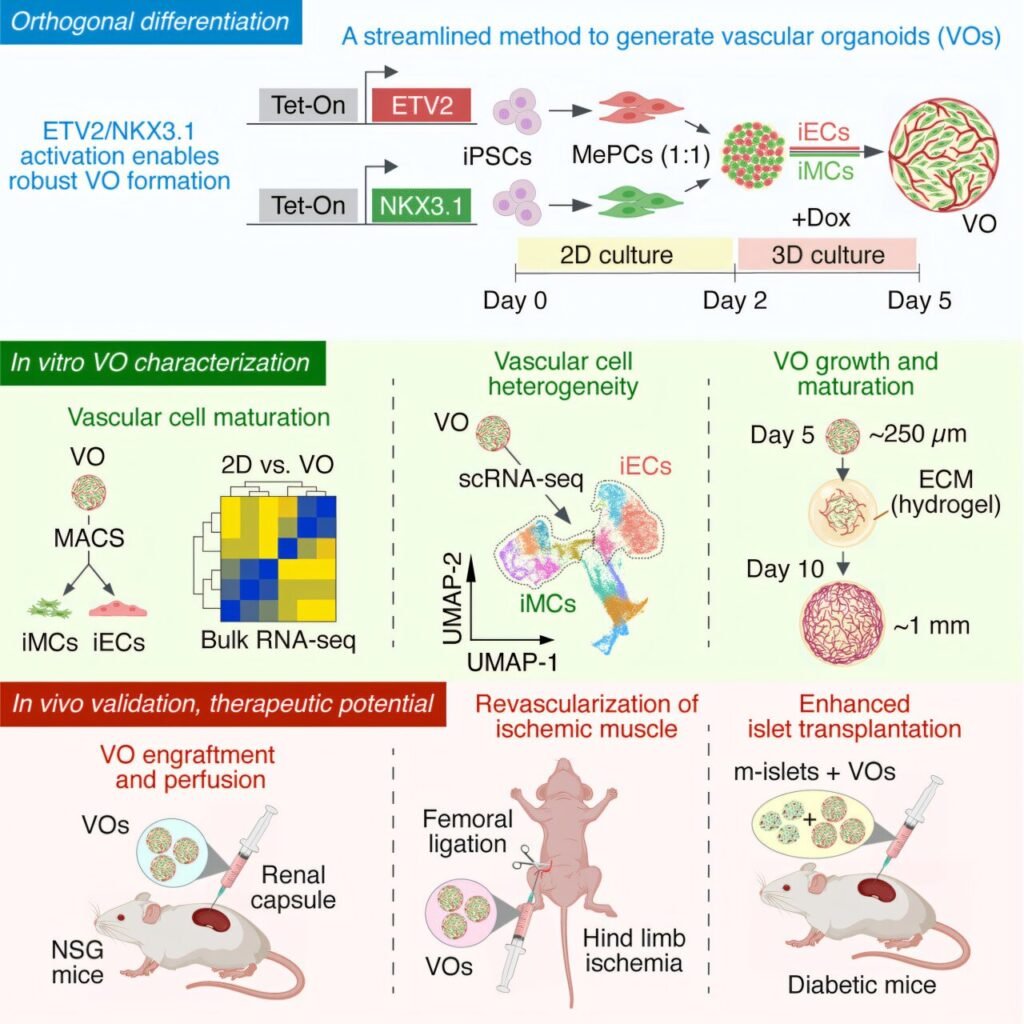Boston Children’s Hospital researchers have made a groundbreaking discovery in the field of tissue engineering with the development of functional vascular organoids in just five days. These organoids have the capability to support blood flow and engraftment in living organisms, offering a promising avenue for regenerative medicine and drug testing.
Blood vessels play a crucial role in the human body, delivering essential nutrients and oxygen, regulating hemostasis, and modulating inflammation. The development of vascular networks in vitro has long been a goal for researchers, as it would enable detailed studies of human vessel development and facilitate the production of pre-vascularized grafts for therapeutic purposes.
Previous organoid strategies have shown promise in producing vascular structures, but they often required prolonged culture periods and external support, limiting their scalability and clinical applicability. In the study published in Cell Stem Cell, researchers detailed a novel approach to rapidly generate functional vascular organoids through the simultaneous activation of endothelial and mural cell lineages.
Using induced pluripotent stem cells, researchers induced the differentiation of these cells into endothelial and mural fates within free-floating spheroids. Through a carefully orchestrated program involving the expression of specific transcription factors, the researchers were able to coax these cells into forming blood vessel-like structures in just five days.
After implanting these organoids into mice models, the researchers observed impressive results. The organoids successfully integrated into the host’s circulation, restoring lost blood flow in injured limbs and significantly reducing tissue damage. In addition, the organoids were able to support the survival of transplanted islet cells, offering a potential new avenue for diabetes therapy.
The study’s findings suggest that this novel approach to vascular organoid generation holds great promise for treating ischemic injuries, improving cell therapy outcomes, and potentially providing a long-term solution for diabetes management. The researchers believe that this scalable method could pave the way for personalized vascular organoids tailored to individual patient needs, opening up new possibilities for regenerative medicine and tissue engineering.
As science journalism strives to bring the latest research findings to the public, your support is vital in keeping independent reporting alive. If you find this information valuable, please consider making a donation to help sustain the work of journalists like us. Together, we can continue to explore the frontiers of scientific discovery and innovation.
Reference:
Gong, L., et al. (2025). Rapid generation of functional vascular organoids via simultaneous transcription factor activation of endothelial and mural lineages. Cell Stem Cell. DOI: 10.1016/j.stem.2025.05.014.
© 2025 Science X Network


